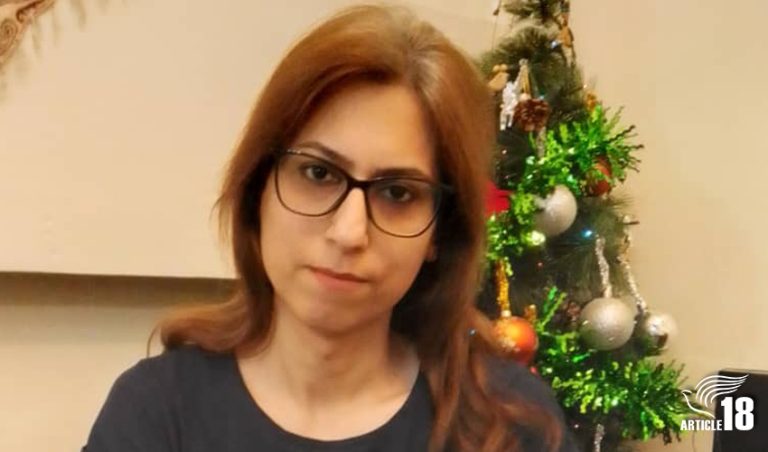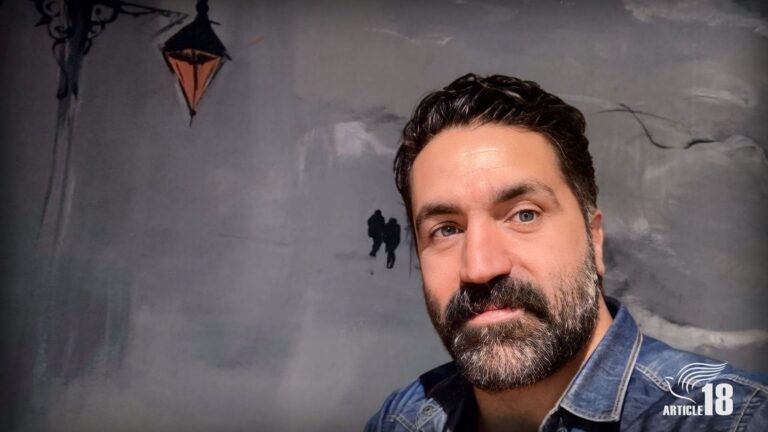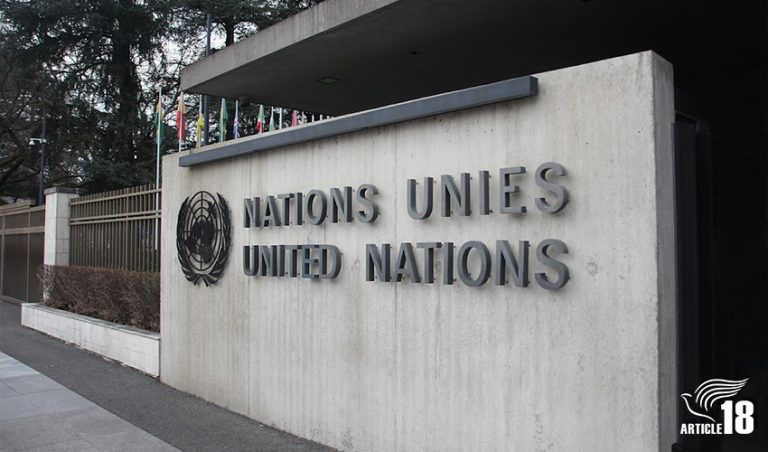The mandates of the UN’s Special Rapporteur on Human Rights in Iran and independent fact-finding mission (FFM) have both been renewed by the Human Rights Council.
The mandates were voted through today by 24 votes in favour to eight against, with 15 abstentions.
The representative of Iceland, which presented the bill, said that while “the Iranian authorities may not be in favour of this resolution, the people of Iran are. They want accountability; they want to have their voices heard.”
The representatives of Spain, Switzerland, Mexico, Belgium, Brazil, the Netherlands and Costa Rica gave statements in support of the resolution, while the delegations of the Islamic Republic of Iran, Cuba, China and Indonesia spoke in opposition.

The recorded vote on 3 April
Article18 had joined over 40 rights groups and Nobel Peace Prize winner Shirin Ebadi in calling for the renewal of both mandates in a joint letter sent to UN member states last month.
In the letter, we said that Special Rapporteur Mai Sato’s mandate and “a complementary international independent investigative mechanism” were both essential in “combating systematic impunity for recent and ongoing violations”, including the “systematic discrimination and violence” against religious or belief minorities.
The members of the FFM said last month that they had only “scratched the surface” in “exposing the structural and institutional discrimination” against religious minorities in Iran, and needed more time to investigate these and other rights violations.
The FFM’s Viviana Krsticevic said “more investigations into the unaddressed root causes [of religious discrimination were] required”, and that this was “one of the reasons” the FFM was recommending a renewal of its mandate, “as continued scrutiny is essential”.
The head of the FFM, Sara Hossain, added that “the enforcement of discriminatory laws and policies not only enables repression of women and girls” – the focus of the FFM’s mission, in the wake of the death in custody of Mahsa Amini – “but also other groups on grounds of ethnicity, religion and or political belief”.
“The suppression of these all equally warrant this Council’s attention,” she said. “For this reason … we recommend that the council consider a follow-up body that could continue to investigate the serious human rights concerns already identified and also accompany accountability efforts.”
“In this way,” she said, the Human Rights Council could “play a vital role in supporting Iranians right to truth, justice and reparations, and crucially, to prevent further cycles of violence”.
Ms Krsticevic also called for member states to offer “continued support” to “victims and survivors of persecution” by “supporting them in host countries [through] asylum, humanitarian visas and other support”.
Meanwhile, Dr Sato’s first report to the council highlighted once again how Christian converts are among the groups facing “troubling” religious discrimination in Iran.



0 Comments